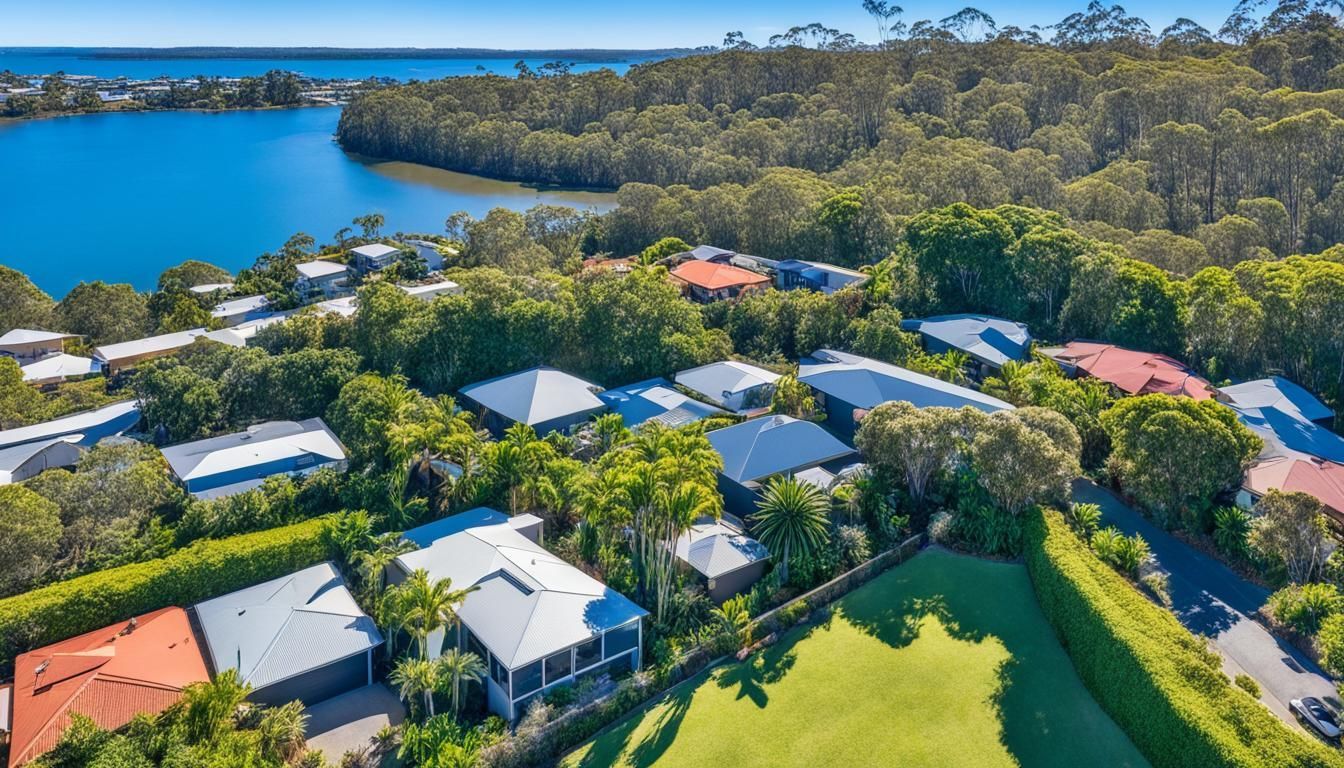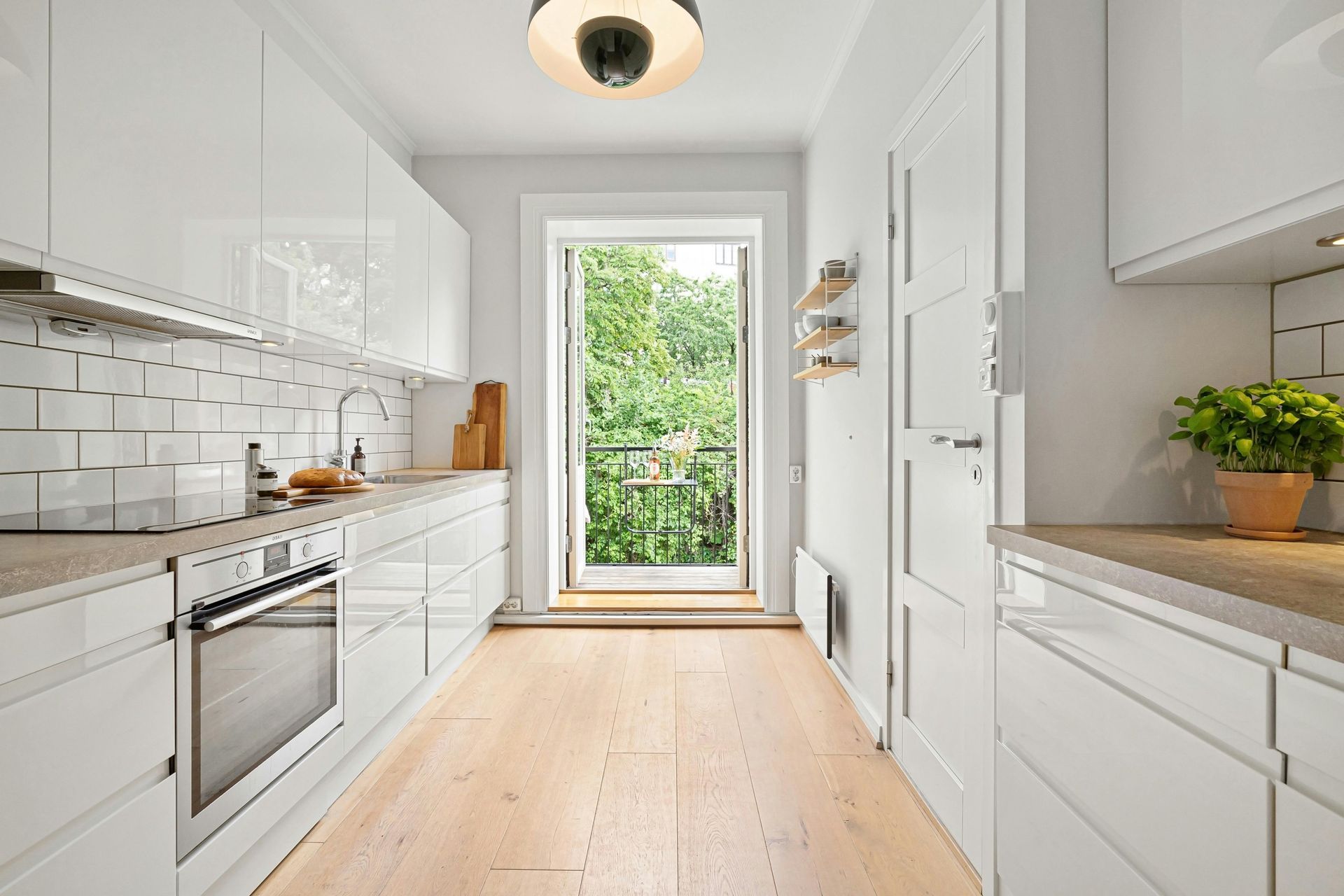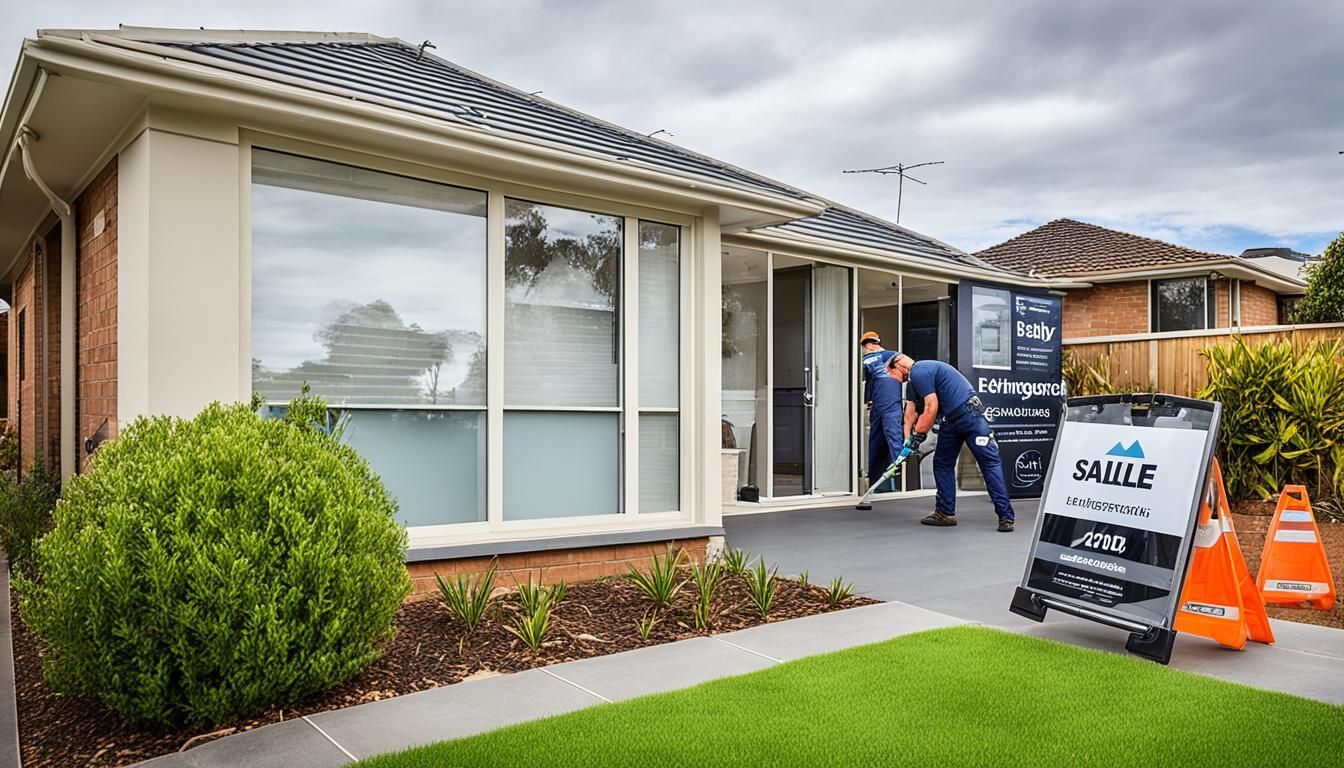Understanding Adelaide's Zoning Laws: A Guide for Residential Property Owners
This is a subtitle for your new post

Welcome to our comprehensive guide on understanding Adelaide's zoning laws. If you own residential property in Adelaide, it's crucial to be familiar with the zoning regulations that govern land use and development within the city. By understanding these laws, you can ensure compliance, make informed decisions, and maximize the potential of your property.
Adelaide's zoning laws play a significant role in determining how residential properties can be used and developed. These laws categorize different areas into specific zoning classifications, which dictate the allowable land uses and development standards. As a property owner, it is essential to navigate through these regulations effectively to avoid any legal complications and fully utilize the potential of your property.
Key Takeaways
- Adelaide's zoning laws regulate the use and development of residential properties.
- Understanding the zoning regulations is essential for property owners to know what they can and cannot do with their properties.
- Zoning classifications determine the allowable land uses and development standards for each area.
- Compliance with zoning laws is crucial to avoid legal complications.
- By understanding Adelaide's zoning laws, property owners can make informed decisions and maximize the potential of their properties.
Introduction to Adelaide's Residential Zoning Laws
Adelaide's residential zoning laws are vital to regulating the use and development of land within the city. These laws classify different areas into specific zoning classifications, which determine the permissible land uses and development standards for residential properties.
Understanding these zoning laws is crucial for property owners as it empowers them to make informed decisions and ensures compliance with the regulations governing their residential properties.
As property owners navigate through the complex landscape of Adelaide's zoning laws, they must have a clear understanding of the zoning classifications and how they impact their properties.
Navigating the New Planning, Development and Infrastructure Act 2016
The Planning, Development and Infrastructure Act 2016 has brought significant changes to Adelaide's zoning regulations, replacing the old planning system. As property owners, it's crucial to understand the transition process from the old system to the new one to ensure compliance with the updated regulations.
The Transition from Old to New System
Adelaide's transition from the old planning system to the new one involves familiarizing ourselves with the Planning and Design Code, which outlines the development rules and requirements. This code plays a vital role in determining how properties can be developed and used within specific zoning classifications.
Key Features of the New Planning System
The new planning system introduced several key features that property owners should be aware of. The Planning and Design Code provides comprehensive guidelines and standards for development, ensuring consistency and clarity across different zoning categories. This code promotes sustainable and responsible development in Adelaide.
Utilizing the ePlanning Portal and Planning & Design Code
The ePlanning portal is a valuable resource for property owners to submit and track development applications conveniently and transparently. This online platform streamlines the application process, making it easier to communicate with assessment authorities and monitor progress.
By utilizing the Planning and Design Code and the ePlanning portal, property owners can navigate Adelaide's new planning system more effectively, ensuring compliance with zoning regulations and making informed decisions regarding their properties.
The Role of Assessment Authorities Under Adelaide's Zoning Regulations
Assessment authorities play a crucial role in the implementation and enforcement of Adelaide's residential zoning laws. These authorities are responsible for ensuring that development proposals comply with zoning regulations and contribute to the overall planning policies of the State Planning Commission.
State Planning Commission: Powers and Responsibilities
The State Planning Commission holds significant power and responsibility in the assessment of development proposals. It has the authority to review and determine whether proposed developments align with the zoning regulations and planning policies set forth by the government.
The State Planning Commission also has the power to establish planning policies that guide local councils and other assessment authorities in making decisions regarding development applications. These policies aim to create a cohesive approach to development across the state and ensure that all proposed projects are in line with the long-term vision for Adelaide.
Local Councils and Their Functions in Zoning
Local councils, on the other hand, are the primary assessment authorities at the local level. They have the authority to make decisions on certain development applications within their jurisdiction, following the guidelines and policies established by the State Planning Commission.
Local councils are responsible for assessing development proposals within their area, considering factors such as land use, environmental impact, and compliance with zoning regulations. They play a crucial role in shaping the development of their communities and ensuring that proposed projects align with the overall vision for the area.
The Evolution of Assessment Panels and Managers
As development proposals become more complex, the need for specialized assessment panels and managers has emerged. These panels consist of experts in various fields, including planning, architecture, and environmental management. They assist in making decisions on complex development proposals, ensuring that all aspects are thoroughly assessed and comply with zoning regulations.
Assessment managers, appointed by assessment authorities, oversee the assessment of development applications. They play an essential role in coordinating the assessment process, facilitating communication between all stakeholders involved, and ensuring compliance with zoning regulations.
In-Depth Understanding of Adelaide Property Zoning Rules
In this section, we will provide an in-depth exploration of Adelaide's property zoning rules, shedding light on the different zoning classifications and their implications for property owners.
Adelaide's residential zoning laws categorize different areas into specific zoning classifications to regulate land use and development. Understanding these classifications is crucial for property owners to navigate the regulations effectively and make informed decisions.
Let's delve into the different zoning classifications:
1. Residential Zone: This zone is designated for residential purposes, allowing the construction of single-family homes, townhouses, and other residential dwellings.
2. Commercial Zone: This zone is intended for commercial and retail activities, such as offices, shops, restaurants, and hotels. Building in this zone must adhere to commercial development standards.
3. Mixed-Use Zone: This zone allows for a combination of residential and commercial activities. It offers flexibility for property owners to develop multi-story buildings with residential units on higher floors and commercial spaces on lower levels.
4. Industrial Zone: This zone caters to industrial activities, including manufacturing, warehouses, and logistics operations. Strict regulations are in place to ensure compatibility with the surrounding environment.
5. Rural Zone: This zone is designated for agricultural and rural activities. It allows for farming, forestry, and other rural land uses.
Each zoning classification has its own set of development standards, land use restrictions, and building regulations. Property owners need to be aware of these rules and comply with them when developing or modifying their properties.
By understanding Adelaide's property zoning rules, property owners can navigate the regulations effectively and make informed decisions about their residential properties.
Adelaide's Zoning Restrictions and Your Property
Understanding the zoning restrictions that apply to your property is crucial as it determines what you can and cannot do with your property. Adelaide's residential zoning laws establish specific rules and regulations that property owners must adhere to in order to ensure compliance and avoid any violations.
Identifying Zoning Classifications for Your Property
In order to navigate Adelaide's zoning restrictions, property owners need to first identify the zoning classification of their property. The zoning classifications, such as residential or commercial, determine the allowed land uses and set specific limitations on property alterations and developments.
Residential Vs Commercial Zoning Impact on Property Owners
The difference between residential and commercial zoning classifications plays a crucial role for property owners. Residential zoning is mainly centered around housing and related activities, whereas commercial zoning permits a range of business and commercial operations. It's vital for property owners to understand the limitations and obligations tied to their property's zoning category to comply and make knowledgeable choices about property utilization and development. For those interested in residential investments, exploring Adelaide's top residential investment suburbs can provide valuable insights into areas that align with residential zoning regulations.
Navigating Restrictions for Property Alterations and Developments
When considering property alterations or developments, property owners must carefully navigate the zoning restrictions in place. This includes obtaining the necessary permits and approvals, adhering to the development regulations and guidelines, and ensuring that the proposed changes align with the specific zoning classification of the property. Failure to comply with these restrictions can result in legal consequences and delays in project completion.
By understanding and navigating Adelaide's zoning restrictions, property owners can effectively manage their properties and make informed decisions regarding property use and development. It is important to consult with professionals and resources provided by the government to ensure compliance with the zoning laws and regulations.
Residential Zoning Criteria Adelaide: What Property Owners Must Know
In this section, we explore the specific criteria for residential zoning in Adelaide, a key aspect for property owners to comprehend. Understanding the regulations and requirements that dictate residential zoning in the city is crucial. This knowledge allows property owners to make well-informed decisions regarding their properties.
The Adelaide residential property outlook is significantly influenced by the city's residential zoning laws. These laws are critical in shaping property usage and development. Grasping the criteria for residential zoning is essential for property owners to understand permissible activities and limitations on their properties.
Residential zoning criteria in Adelaide are established to ensure the appropriate use of land and preserve the quality of residential neighborhoods. These criteria may include factors such as the type of housing allowed, building height restrictions, setback requirements, and land use restrictions.
Adelaide's residential zoning regulations are essential for maintaining the character and integrity of residential areas. These guidelines help prevent incompatible land uses and promote sustainable development in neighborhoods. Understanding these regulations is crucial for property owners, especially when considering the growing interest in green homes in Adelaide.
By adhering to the residential zoning criteria, property owners contribute to the overall livability and attractiveness of the city. Compliance with these regulations also helps avoid conflicts with neighbors and potential legal issues.
Property owners should familiarize themselves with the specific criteria for residential zoning applicable to their properties. This knowledge empowers them to make informed decisions about property use, development, and potential alterations.
In the next section, we will explore the financial implications of Adelaide's zoning laws, including stamp duty considerations and the influence of zoning on property value and investment potential.
Financial Implications of Zoning Laws Adelaide
Zoning laws in Adelaide have significant financial implications for property owners. It is essential to understand these implications to make informed decisions and navigate the financial aspects of zoning.
Stamp Duty Considerations for Residential Transfers
When it comes to residential transfers, zoning has a direct impact on the amount of stamp duty payable. Different zoning classifications may attract varying levels of stamp duty, depending on the property's value and intended use. It is crucial for property owners to be aware of these considerations to estimate the financial obligations associated with residential transfers accurately.
Influence of Zoning on Property Value and Investment Potential
Zoning regulations significantly influence property values and investment potential. The type of zoning classification assigned to a property dictates its permitted uses, development standards, and restrictions. This, in turn, affects its overall desirability and market value. Understanding how zoning laws impact property value and investment potential is vital for property owners looking to maximize their returns and make strategic real estate decisions.
Understanding Stamp Duty Exemptions and Concessions in Zoning Contexts
In certain zoning contexts, there may be stamp duty exemptions or concessions available to property owners. These exemptions and concessions are designed to minimize the financial burden of stamp duty in specific circumstances, such as purchasing properties for certain purposes or for first-time homebuyers. Familiarizing oneself with these exemptions and concessions can provide valuable opportunities to save on stamp duty costs under the appropriate zoning contexts.
As property owners navigate Adelaide's zoning laws, understanding the financial implications is crucial. Considering stamp duty considerations, the influence of zoning on property value and investment potential, and the availability of stamp duty exemptions and concessions are key factors in making informed financial decisions. By staying informed and consulting with professionals, property owners can ensure compliance and navigate the financial aspects of zoning effectively.
Summary
In conclusion, it is vital for residential property owners in Adelaide to have a solid understanding of the city's zoning laws. By familiarizing themselves with these regulations, property owners can navigate through the complexities and ensure compliance with the necessary guidelines.
This comprehensive guide has provided an overview of Adelaide's zoning laws, including the roles of assessment authorities such as the State Planning Commission and local councils. It has also explored the various zoning classifications, restrictions, and the financial implications that property owners should consider.
To successfully navigate Adelaide's zoning laws, property owners are encouraged to seek professional guidance and leverage the resources made available by the government. By doing so, they can make informed decisions about their residential properties and ensure compliance with the regulations that govern them.
Frequently Asked Questions
What are Adelaide's zoning laws?
Adelaide's zoning laws are regulations that determine how residential properties can be used and developed within the city.
Why is it important for residential property owners to understand zoning regulations?
Residential property owners need to understand zoning regulations to ensure compliance and make informed decisions about their properties.
How do Adelaide's zoning laws categorize different areas?
Adelaide's zoning laws categorize different areas into specific zoning classifications, which determine the allowable land uses and development standards.
What is the Planning, Development and Infrastructure Act 2016?
The Planning, Development and Infrastructure Act 2016 replaced the old planning system in Adelaide and brought significant changes to the zoning regulations.
How can property owners navigate through the new planning system?
Property owners can navigate through the new planning system by understanding the transition process, utilizing the ePlanning portal, and referring to the Planning and Design Code.
Who are the assessment authorities responsible for enforcing zoning regulations in Adelaide?
The State Planning Commission is responsible for assessing development proposals and establishing planning policies, while local councils have the authority to make decisions on certain development applications.
How do zoning restrictions impact property owners?
Zoning restrictions determine what property owners can and cannot do with their properties, including property alterations and developments.
How can property owners identify the zoning classification of their properties?
Property owners can identify the zoning classification of their properties by referring to the zoning maps or contacting the local council or planning authority.
What are the financial implications of zoning laws for property owners?
Zoning laws can have financial implications for property owners, including stamp duty considerations and the influence of zoning on property value and investment potential.
How can property owners navigate the financial aspects of zoning?
Property owners can navigate the financial aspects of zoning by understanding stamp duty exemptions and concessions in the context of zoning laws.
Quick Links
Contacts
Phone: (03) 8618 6913
Email: Hirchpropertygroup@gmail.com
Address: 49 Edgar Street, Glen Iris VIC 3146
© 2023 Hirch Property Group. All Rights Reserved | Privacy Policy | Website by Octopus Digital











